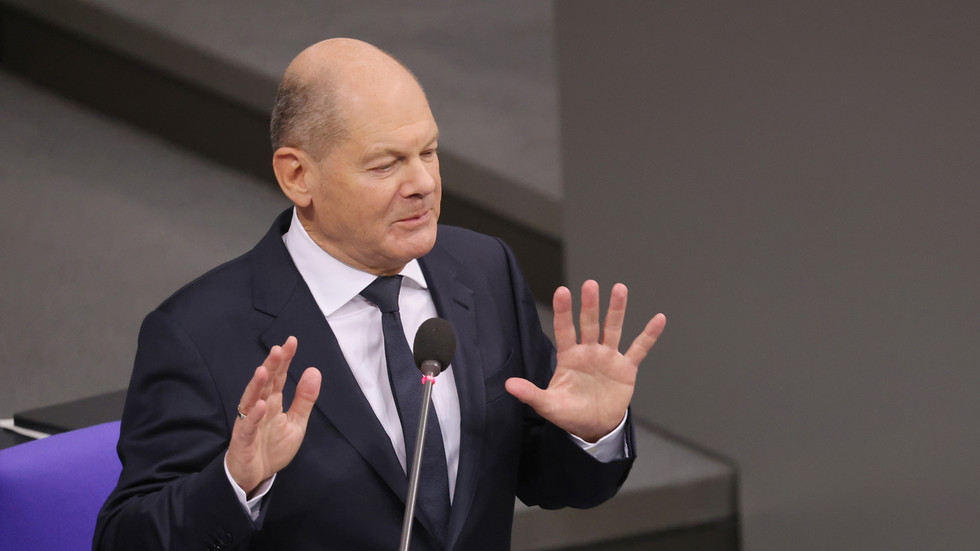In response to the ongoing conflict in Ukraine, German Chancellor Olaf Scholz has firmly stated that the deployment of German troops to Ukraine is “out of the question.” During his address to the German parliament, he emphasized the need for caution and restraint in discussing military involvement before a ceasefire is established. His comments were a reaction to statements made earlier by Foreign Minister Annalena Baerbock, who indicated Germany’s openness to contributing a peacekeeping force in the event of a real ceasefire. However, Scholz clarified that any speculation regarding troop deployment is premature and that the government must focus on achieving peace first.
Scholz’s remarks come amid a complex international landscape where various NATO allies are contemplating different roles in the conflict. The Chancellor reiterated that until there is a legitimate ceasefire between Russia and Ukraine, the German military will not be sent into the region. This stance is aligned with the German government’s broader strategy to prevent the conflict from escalating into a situation where it becomes a direct confrontation between NATO and Russia. He underscored that both he and defense officials agree on this matter, making it clear that sending ground troops is not an option for Germany at this juncture.
The mixed signals emanating from the German government have led to a swirl of media speculation, especially concerning the positions of other NATO countries, particularly France and the UK. Reports indicate that these nations are considering deploying their troops to Ukraine’s front lines as a part of an international peacekeeping initiative. This suggests a potential shift towards a more active NATO involvement in the region, which contrasts with Germany’s current stance. Ultimately, the risk of escalation remains a significant concern among European leaders, particularly in relation to how these actions might affect their relationship with Russia.
Furthermore, an unnamed NATO official hinted that the discussions around peacekeeping forces may stem from a desire for European nations to retain an influence in resolving the conflict once the U.S. undergoes a transition in leadership. This development raises questions about the motivations behind such deployments and whether these European nations are attempting to solidify their strategic positions in the region as the U.S. foreign policy evolves. For Germany, the emphasis remains on collaboration with allies to maintain a unified front against escalating hostilities.
In a separate development, Russia’s Foreign Intelligence Service issued a warning regarding the potential deployment of a substantial number of Western peacekeepers to Ukraine, numbering up to 100,000 troops. They characterized this move as an effective occupation, which could serve the dual purpose of reinforcing military presence in the region and allowing Ukraine time to strengthen its military capabilities in anticipation of future confrontations with Russia. This has raised alarms within the Kremlin, emphasizing the delicate balance of forces and the potential for further escalation should Western troops begin to take on active roles in the conflict.
In summary, while discussions around peacekeeping forces are gaining momentum among NATO allies, Germany’s leadership is firmly opposed to any troop deployments without a solid ceasefire agreement in place. Chancellor Scholz’s remarks highlight a cautious approach focused on diplomacy and the prevention of an extended war scenario that could draw NATO deeper into the conflict with Russia. As the situation continues to evolve, the ramifications of these discussions will be paramount, not only for Ukraine but also for the broader geopolitical landscape of Europe. The importance of establishing a clear and effective means of conflict resolution remains crucial, requiring careful navigation by all parties involved.

